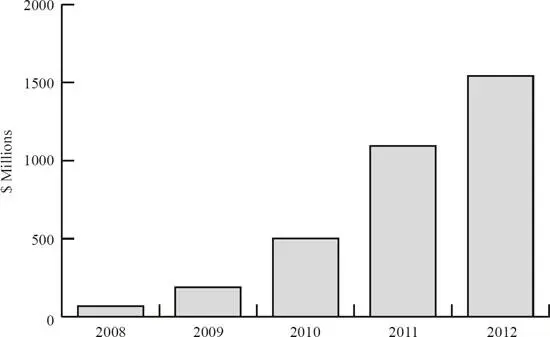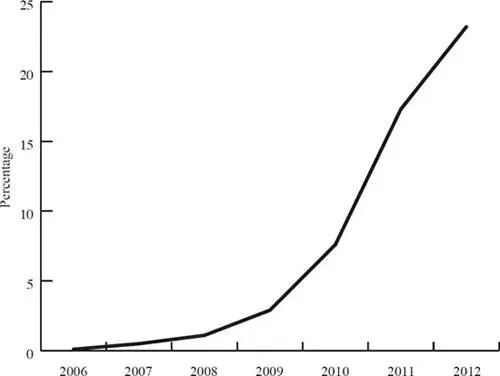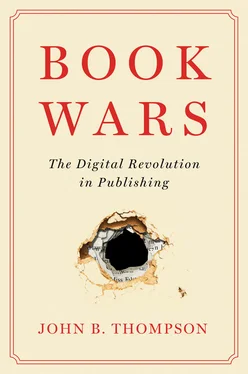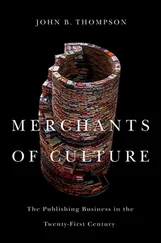By late 2009, Amazon faced new competition from Barnes & Noble, which launched its own ebook reader, the Nook, in November 2009. Barnes & Noble had been an early entrant in the online marketplace for books, having created an online bookstore, barnesandnoble.com, in 1997, two years after Amazon went live, but barnesandnoble.comstruggled to compete with its more creative and efficient rival; the launch of the Nook was Barnes & Noble’s attempt to gain a foothold in the emerging ebook market and to compete head-to-head with the Kindle. Like the Kindle, the Nook used e-ink technology and wireless 3G connectivity to enable readers to buy ebooks directly from the Barnes & Noble store. The Nook retailed at $259 – the same price to which Amazon had reduced the Kindle 2 in October 2009. A year later, Barnes & Noble released the Nook Color, equipped with a 7-inch full-colour LCD touchscreen and priced at $249. Although Barnes & Noble was a relatively late entrant in the e-reader marketplace, it had one important advantage that it exploited to the full: the company had over 700 retail bookstores across the US and it devoted prime space in many of these stores to exhibit, demo and hand-sell the Nook. And, like Amazon, Barnes & Noble already had a large and established customer base of readers who were accustomed to buying books from its stores.
When Apple finally entered the ebook market with the launch of the first iPad in April 2010, they were entering a market in which the two largest book retailers in the US, Amazon and Barnes & Noble, already had major stakes. What Apple did, however, was to integrate the ebook reading experience into the environment of an ultra-stylish, state-of-the-art, multi-purpose tablet computer with a high-resolution LCD touchscreen. Unlike the Kindle and the Nook, the iPad was not a dedicated reading device, but it offered users the option of reading ebooks by downloading an iBook app from the App Store, which displays ebooks and other content that can be purchased from Apple’s iBookstore. The iPad proved hugely successful: 3 million devices were sold in the first eighty days, and by the time the iPad 2 was launched in March 2011, more than 15 million iPads had been sold worldwide. The iPad was much more expensive than the Kindle or the Nook (the initial models were selling for between $499 and $829, depending on the capacity and functionality), but this was much more than a reading device: with the iPad, books entered a new world in which reading was just one of the many things you can do on a small, portable computer, and where the potential for creating new kinds of content, capable of being read and consumed in new kinds of ways, far exceeded anything that had been possible on the Kindle, the Nook and other dedicated reading devices.
The appearance of a new generation of reading devices that were much more stylish and user-friendly than the ebook readers of the early 2000s, coupled with the aggressive promotion of ebooks by major booksellers with large and established clienteles, were the critical factors that underpinned the dramatic upsurge in ebook sales from 2008 on. This remarkable pattern of growth can be seen in table 1.1and figure 1.1, which show overall ebook sales for trade books in the US between 2008 and 2012. 4In the period up to 2006, ebook sales had remained very low and largely static – probably under $10 million. This was a tiny proportion, a small fraction of 1 per cent, of a sector in which total annual sales were around $18 billion. Ebook sales showed some growth in 2006 and 2007, thanks in part to the Sony Reader, but by the end of 2007 ebook sales were still well under $50 million. But from 2008 on, ebook sales began to increase dramatically, reaching $69 million in 2008 – the first full year of the Kindle – and jumping to $188 million in 2009, an increase of nearly 3-fold in one year. By 2012, ebook sales had reached over $1.5 billion, a 22-fold increase in just four years. This was dizzying growth.
Table 1.1US ebook revenue for trade books, $ millions, 2008–2012
| 2008 |
69.1 |
| 2009 |
187.9 |
| 2010 |
502.7 |
| 2011 |
1095.1 |
| 2012 |
1543.6 |
| Source : Association of American Publishers |

Figure 1.1US ebook revenue for trade books, 2008–2012
Source : Association of American Publishers
For the large trade publishers in the US, the surge in ebook sales meant that a growing proportion of their revenue was being accounted for by ebooks rather than traditional print books, whether hardcover or paperback. Although the precise figures varied from house to house, the overall pattern of growth of ebook sales as a percentage of overall revenue during the period from 2006 to 2012 looked roughly like figure 1.2. For many large US trade publishers, ebooks accounted for around 0.1% of overall revenue in 2006 and 0.5% in 2007; in 2008, this grew to around 1%; in 2009, this was up to about 3%; by 2010, it had risen to around 8%; by 2011, it was around 17%; and by 2012, it had risen to between 20 and 25%, depending on the publisher and the nature of their list. It was no longer a negligible figure – far from it.

Figure 1.2Ebook sales as a percentage of total revenues of major US trade publishers, 2006–2012
Source : Association of American Publishers
The steep rise in ebook sales in the four years from 2008 to 2012 was dramatic and unsettling for many in the industry: after several years during which the much-heralded ebook revolution seemed like a false dawn, suddenly it was an uncontestable reality. Moreover, given the staggering rate of growth, there was no telling where this would end. It’s not hard to see that, if you were a publisher watching this take place around you in 2010, 2011 and 2012, you really would be wondering what was going to happen to your industry. You might even be panicking. You would almost certainly be wondering if publishing was going to go the same way as the music industry. Would ebook sales keep growing at this dramatic rate and become 40 or 50 per cent of your business, maybe even 80 or 90 per cent, in a few years’ time? Were books heading in the same direction as CDs and vinyl LPs – on a precipitous downward slope and likely to be eclipsed by digital downloads? Was this the beginning of the end of the physical book? These were the questions in the minds of most people in the industry at the time – they were seriously worried, and understandably so.
But then something equally dramatic happened: the growth suddenly stopped. It levelled off in 2013 and 2014 and then began to decline. No one at the time had expected this – even the most unswayable sceptics were surprised by this sudden reversal of fortune. In 2013, ebook sales did not continue their meteoric rise but actually fell slightly – from $1,543 million in 2012 to $1,510 million in 2013, a decline of 2.1%, as shown in table 1.3and figure 1.3. Ebooks showed a small increase in 2014 and then fell more sharply in 2015, down to $1,360 million, a decline of 15%, which was matched by a similar decline in the following year. Figure 1.3also shows the rate of growth from one year to the next. It shows that the rate of growth was extremely high in 2009 and 2010, around 170% each year, but then the rate of growth began a steep decline until it reached a number just below zero in 2013. After a small increase in 2014, the rate of growth remained negative from 2015 to 2018.
Читать дальше














